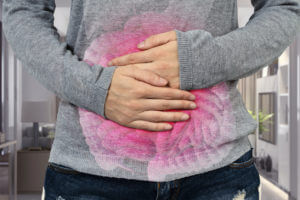Which therapies are most effective to treat ADHD?
There are 3 main treatment options once you or your child are diagnosed with ADHD. You and your integrative medicine provider will work together to determine which is most effective for you or your child. Approaches include (1):
Medication – stimulants or non-stimulants.
Behavior therapy – This includes for children, parents, and individuals.
Lifestyle and diet changes – Functional therapies to treat ADHD naturally, or to maximize the effectiveness of medication.
In school-age children, one study showed that medication combined with behavior therapy provided optimal treatment outcomes (2).
In another study, after correcting nutrient deficiencies such as B6 and magnesium, one child experienced improved sleep and better concentration–and no medication was needed (3).
While it’s tempting to label one approach as the best way to treat ADHD, remember that each individual’s behavioral issues are unique, and the goal is to find the most effective approach–or combination of approaches–that works best to support them.
These 10 strategies can help you address ADHD naturally, with or without medication.
-
Eat a whole foods, nutrient-dense diet.
Quality proteins, healthy fats rich in omega 3s, nutrient-dense fruits and vegetables, and minimally processed grains provide optimal fuel sources for both adults and children for healthy brain and neurotransmitter function.
Neurotransmitters are messengers that send signals between neurons in your brain and body, and they influence things like focus, attention, and information processing.
In a food environment where heavily processed food laden with artificial preservatives and other additives can alter health in numerous ways, eating a whole foods based diet prioritizes health and nutrient density, providing the vitamins, minerals, and quality fuel to healthy neurotransmitter production and function. A nutrient-dense diet is an important step to address ADHD without medication.
-
Remove food sensitivities.

Food sensitivities or intolerances contribute to leaky gut and intestinal inflammation, which can negatively impact gut bacteria and the production of neurotransmitters essential for healthy brain function, worsening symptoms of ADHD like impulsivity and aggression.
Testing can reveal individual sensitivities, but two common offenders are gluten and dairy. Partially digested dairy and wheat particles (called casomorphins and gliadorphins) are found in the urine. The presence of these particles is linked to difficulty paying attention, learning, and public relations, typical of autism spectrum disorders and ADHD (4).
While not all people are sensitive to gluten and/or dairy, it’s often helpful to omit these foods completely for at least 6 weeks.
-
Fix nutrient deficiencies.
An array of nutrient deficiencies, including B vitamins, zinc, omega 3 fatty acids, and magnesium are linked to the development of ADHD. Many of these nutrients work synergistically with one another, which makes a deficiency in one affect the proper function of the others.
For example, magnesium supplements with vitamin B6, which increases magnesium absorption, have shown promise for reducing ADHD symptoms (5).
In a 2016 study on patients with ADHD aged 6 to 16 years, “72% of the children were found to be deficient in magnesium and there was a significant correlation between hair magnesium, total IQ, and hyperactivity”(6).
It is estimated that about 48% of Americans of all ages have an inadequate intake of magnesium (7).
-
Heal a leaky gut.
The gut is ground zero for the health of your entire body. The gut is where friendly bacteria manufacture important neurotransmitters like serotonin and dopamine, and absorb nutrients like magnesium and B vitamins.
Not only can healing the gut provide relief from common gastrointestinal symptoms, but it can also improve mood, attention, and an overall sense of wellbeing (8).
How to know if your gut needs some attention? If you experience constipation, bloating, food sensitivity, irregular or uncomfortable bowel movements, or crave sugar often, these are all hallmark signs of a digestive imbalance.
-
Increase your antioxidants.
Our bodies are constantly exposed to unstable free radicals, which, if left unchecked, can circulate around the body and damage important things like DNA structure, brain, and other cells. You can think of free radicals like cells that haven’t been to therapy–they’re unstable, unpredictable, and that’s what makes them harmful.
Enter: antioxidants, which play the role of therapists. They stabilize the free radicals and keep their oxidative damage in check. A few examples of these are vitamin C and glutathione.
Oxidative stress and glutathione deficiency have been connected to cognitive disorders like ADHD, and neurodegenerative diseases like dementia (9). Studies have examined various antioxidants including pycnogenol, ginkgo biloba, and glutathione.
-
Detoxify.
Excessive heavy metal exposure is detrimental to neurodevelopmental processes in children and has neurotoxic effects which impair cognitive function. Therefore, heavy metals may be involved in the development of ADHD.
Studies, including meta-analysis, have shown a link between exposure to lead and mercury, and an increase in inattention and hyperactivity, and a decrease in intelligence (10). 
Overexposure to heavy metals in children who are genetically susceptible to their effects could play a role in ADHD. Each person’s detoxification systems function differently. Some people are great detoxifiers, and others–like those with ADHD–are often not.
-
Decrease “excitotoxins”.
Excitotoxins are substances that overstimulate neuron receptors. Neuron receptors facilitate brain cell communication and, upon exposure to excitotoxins, fire more rapidly than normal, which can lead to hyperactivity, impulsivity, and difficulty concentrating.
Substances considered excitotoxins are most often artificial food additives like FD&C yellow, MSG, aspartame, or glutamate (11).
GABA/Glutamate Imbalance
GABA, or gamma aminobutyric acid, is an amino acid and neurotransmitter that calms the brain, while glutamate is more excitatory in nature, stimulating the brain and sometimes putting it in overdrive.
Low GABA levels are associated with ADHD. Low GABA is usually accompanied by inattention while high glutamate levels can lead to aggression and impulsivity. GABA, like serotonin, is primarily manufactured in the gut.
Magnesium supplementation is one mechanism that can support a healthy GABA/glutamate balance–keeping the excitatory neurotransmitter glutamate within appropriate limits, and supporting the calming actions of GABA.
-
Eat more protein with breakfast.
Many go-to breakfast foods–especially those made for children–are laden with sugar, processed carbohydrates, and artificial preservatives. Unfortunately, this is the least stable source of fuel and can send even a neuro-typical brain into an energy spiral.
Children and adults with ADHD should begin their day with a high protein breakfast, and they often need to eat frequently throughout the day. Meals and snacks should always be balanced while prioritizing protein, healthy fats, and minimally processed carbohydrates.
-
Stick to a consistent sleep schedule.
Children and adults with ADHD are more likely to show improvement in focus, energy, and attention with consistent and adequate sleep.
People with ADHD are more likely to experience shorter sleep time, problems falling asleep, and staying asleep. It’s often that people with ADHD wake still feeling tired or groggy (12).
Because you feel tired, your ADHD symptoms get worse, and that makes it even harder to sleep the next night.
Going to bed at roughly the same time each night, having a healthy nighttime routine can help you fall asleep easier. Participating in activities which support a healthy circadian rhythm is also beneficial for children and adults with ADHD.
-
Spend more time outside.

Studies show time spent in “green space” improves focus and attention, and decreases impulsivity in children with ADHD (13).
The underlying mechanisms for these benefits aren’t fully understood, but the benefits speak for themselves. Making a priority to spend time outside–whether in nature or your own backyard–benefits not only your physical health, but mental and cognitive function as well.
Treating ADHD with Integrative Medicine
While some severe cases of ADHD do require medications, for most kids and adults, simple dietary and lifestyle changes can make enormous differences that have profound impact to improve ADHD without medication.
Every child and adult who experiences behavior or cognitive issues–whether as a result of ADHD, autism, or something else–is an individual. The goal is for each to find his or her most effective approaches to treat ADHD with a trained integrative doctor. The path to healing is open to all of us, but it’s up to you to take the first step.
Resources
- https://www.cdc.gov/ncbddd/adhd/treatment.html
- https://jamanetwork.com/journals/jamapsychiatry/article-abstract/205525
- https://pubmed.ncbi.nlm.nih.gov/15466962/
- https://www.mdpi.com/2076-3425/10/7/437/htm
- https://pubmed.ncbi.nlm.nih.gov/16846100/
- https://www.sciencedirect.com/science/article/pii/S1110863015000555
- https://openheart.bmj.com/content/5/1/e000668
- https://www.ncbi.nlm.nih.gov/pmc/articles/PMC7601389/
- http://www.bioscience.org/2019/v24/af/4720/2.htm
- https://www.ncbi.nlm.nih.gov/pmc/articles/PMC6025252/
- https://pubmed.ncbi.nlm.nih.gov/7854587/
- https://www.ncbi.nlm.nih.gov/pmc/articles/PMC2687494/
- https://ehp.niehs.nih.gov/doi/full/10.1289/EHP6729

